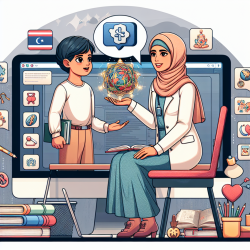As educators, our primary goal is to support student success and development. However, we cannot achieve this alone. Building strong partnerships with parents is essential to creating a supportive educational environment. This blog will explore strategies to foster positive relationships with parents, address potential conflicts, and highlight the responsibilities of teachers in this dynamic.
Introduction: The Role of Parents in Education
Teachers are experts at delivering curriculum and guiding students toward academic success. However, parents are crucial partners in this journey. Their insights into their children's interests and challenges can significantly enhance the educational experience. When managed effectively, parent-teacher relationships can become a powerful tool for student success and advocacy for the teaching profession.
Parental Engagement: Establishing Communication Protocols
Early in the school year, it is beneficial to establish clear communication protocols with parents. Here are some elements of a good classroom communication strategy:
- Invitations for Input: Encourage parents to share information that might affect their child's progress. Document all such communications.
- Regular Updates: Keep parents informed about classroom happenings to prevent surprises and build trust.
- Clear Expectations: Communicate your discipline methods and classroom expectations clearly.
- Visiting Procedures: Outline procedures for classroom visits to ensure they are constructive and respectful.
Creating Allies: The Teacher's Role
Teachers must uphold professional values and act as role models. This extends beyond classroom walls into the broader community. By communicating effectively and transparently with parents, teachers can align them with the school's mission to foster student success.
Dealing with Conflict: Strategies for Resolution
Inevitably, conflicts may arise between teachers and parents. Understanding the sources of conflict—such as resource limitations or differing values—can aid in resolution. Here are steps to manage conflict effectively:
- Define the Problem: Use active listening to understand concerns fully.
- Get All Information: Ensure both parties are aware of all relevant facts.
- State Your Goal: Clearly articulate your objectives and seek agreement.
- Develop Solutions Together: Collaborate on strategies that address both parties' interests.
- Set Timelines: Agree on a timeline for implementing solutions.
- Follow-Up: Schedule follow-up meetings to assess progress and make necessary adjustments.
The Importance of Documentation
A critical aspect of managing parent-teacher relationships is thorough documentation of all communications. This practice not only protects teachers but also provides a clear record that can help resolve misunderstandings or conflicts efficiently.
The Conclusion: A Partnership Approach
The majority of parent-teacher interactions are positive and productive. By establishing effective communication protocols, being proactive in addressing concerns, and documenting interactions, educators can foster strong partnerships with parents that enhance student learning experiences.
For more information, please follow this link.










